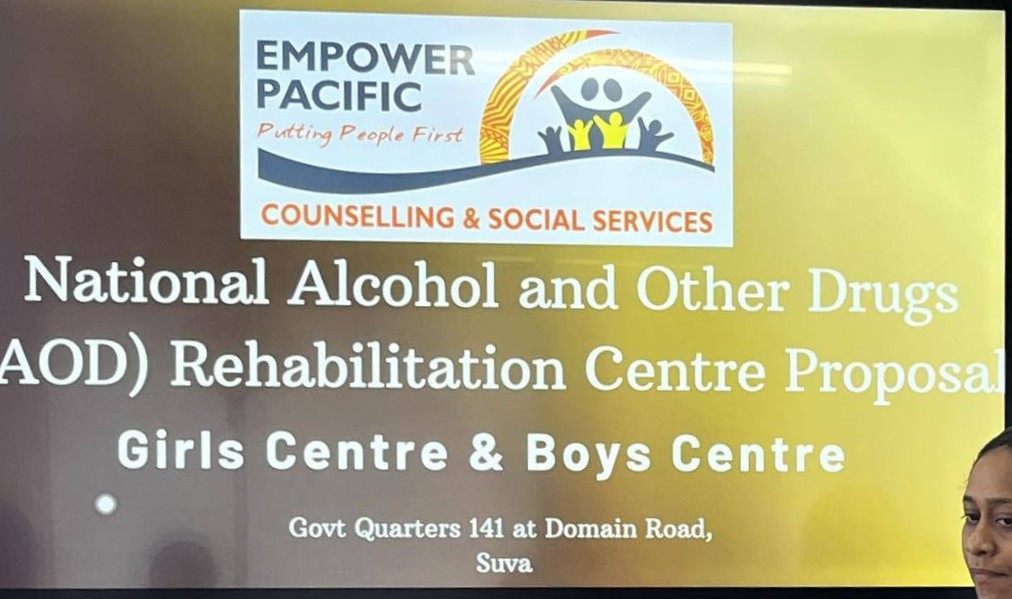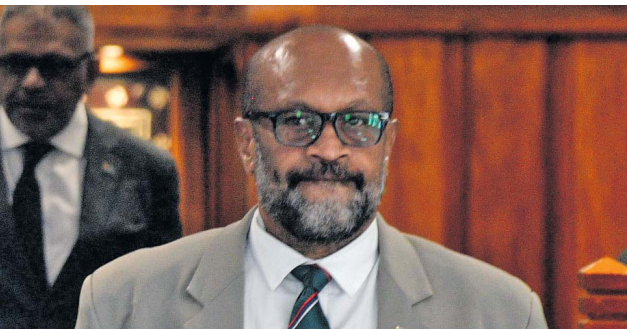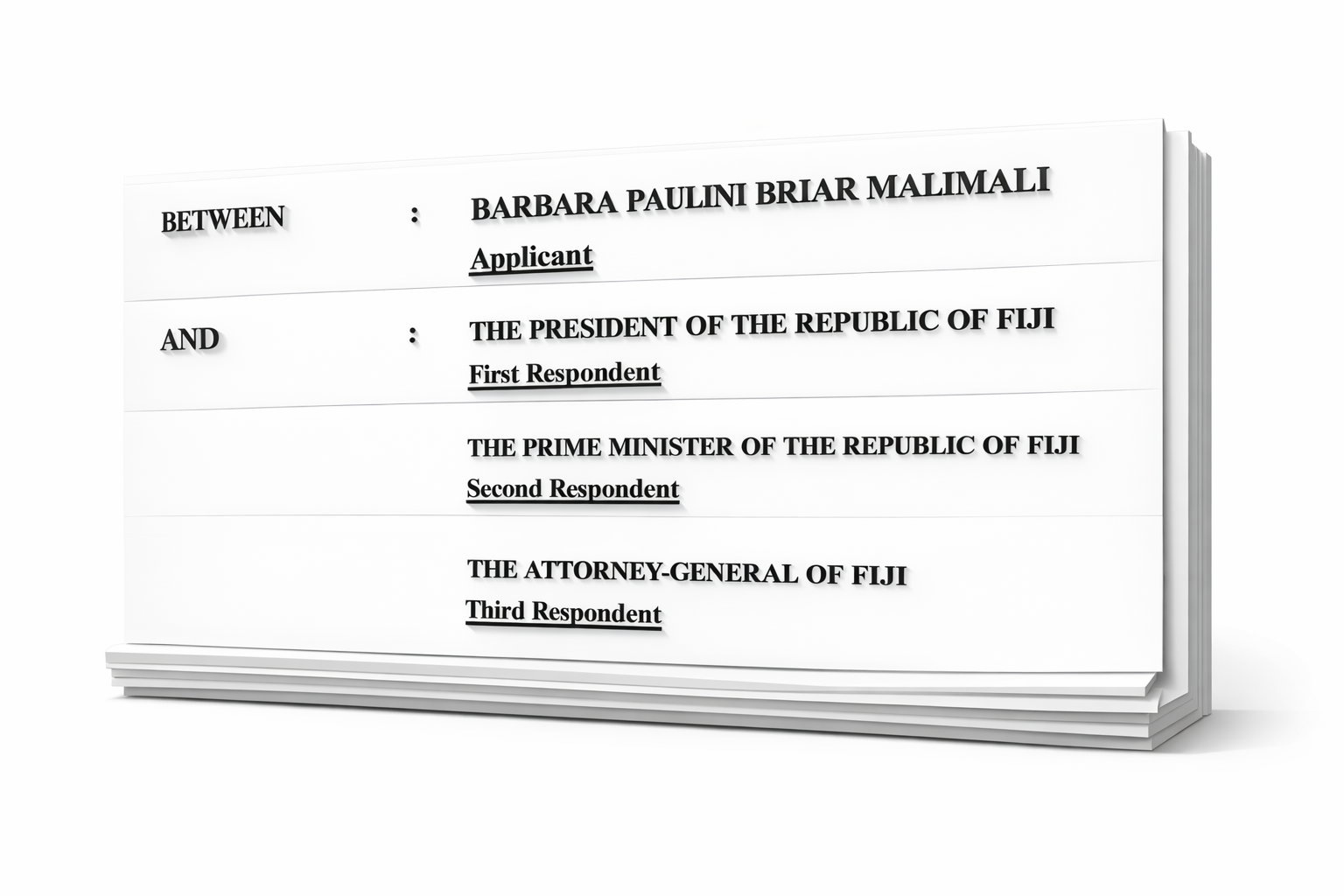Bula
We have three stories on the front page of The Fiji Times for Friday, October 11.
President Ratu Wiliame Katonivere’s speech at the Fiji Day celebration in Labasa challenged Fijians to unshackle themselves from the burdens of the past and “change the narrative of our nation”.
He said while the past could never be changed, Fijians had dwelled in this space long enough.
It was now a matter of necessity for people to come together.
Ratu Wiliame said there was power in healing and forgiveness and urged all to embrace compassion as the nation healed.
We have a follow up on the story about convicted drug trafficker Aiyaz Mohammed Musa Umarji.
Motivated by greed.
That’s how Umarji, a managing director of several pharmacies in Fiji, says he ended up trafficking drugs.
The 48-year-old was deported to Fiji this week after spending part of his three-year six-month sentence in a New Zealand prison.
He was jailed for the importation of pseudoephedrine, the precursor for the drug methamphetamine.
He told the New Zealand Parole Board “greed” was what drove him into committing the offence.
We also have a story about the Fijian Competition and Consumer Commission (FCCC) instituting its first competition case against dishonest distributors and wholesalers for violating market competition rules.
FCCC CEO Joel Abraham said they are prepared to take regulatory action, if necessary to protect consumer welfare.
Synopsis
Power to reshape our nation narrative!
President Ratu Wiliame Katonivere’s Fiji Day message yesterday touched on some of the challenges facing us today.
Reflecting on our nation’s journey, he said while many in leadership roles were not directly responsible for the circumstances we now face, the burden of unresolved issues weighs heavily on us all today.
Emphasizing the need for national unification and reconciliation, he suggested Fijians have lingered “long enough” in a state of division and it was time to “clean the wounds and allow them to heal properly”.
It wasn’t just about acknowledging the past; it was also about harnessing the power of healing and forgiveness.
He reminded us all about the effects of the past 34 years, which were marked by turmoil and strife, and impacted our lives deeply, both personally and nationally.
While not underplaying the impact, he spoke about embracing a spirit of compassion as we move our nation forward together.
This is why he reckons reconciliation becomes crucial, when conflicts leave relationships fractured.
There will no doubt be different views on the issue of reconciliation.
In fact opinions will differ in terms of the need for reconciliation for starters.
Sceptics may insist on keeping the status quo, preferring not to bring back bitter memories of the past.
Despite the challenges, the President acknowledged that those in leadership today, though not responsible for the historical context, share in the collective responsibility to address the issues at hand.
It is an important point!
Questions will no doubt be asked about the process of reconciliation though, and as we mentioned above, the impact it may have on victims, and those who may be held accountable.
We have said this before, and acknowledge that this process may be complex and may provoke a range of responses — from scepticism to optimism.
It isn’t a straight forward process, and may niggle some people, whilst encouraging others to come forward.
The big challenge will be on encouraging people to take ownership of the national process.
This is where questions must be asked, and opinions raised.
For it to succeed, the challenge lies in encouraging Fijians to come forward and actively participate in the national reconciliation process.
Again we say raising awareness about the importance of the TRC and motivating people to share their experiences is an important step.
It is equally important to support and facilitate open dialogue during consultations, allowing people to voice their opinions and ask critical questions.
We should not shy away from asking difficult questions and expressing our concerns.
There may even be inquiries about the alignment of the reconciliation process with constitutional provisions and whether these considerations should be addressed before starting talks.
These questions are important to ensure the process is both fair and effective.
This is an opportunity for us to talk about engaging openly with the process, asking tough questions, and supporting the initiative to ensure it addresses the needs of all affected parties.
We may be able to contribute to a comprehensive and effective reconciliation effort, hopefully, fostering healing and understanding across our nation.
But we must take that first step and be part of the consultation process!
As the President said, the power to reshape our national narrative lies within us.
While we cannot alter the past, we can control how we perceive ourselves and how we engage with one another.
We have a major challenge before us!






